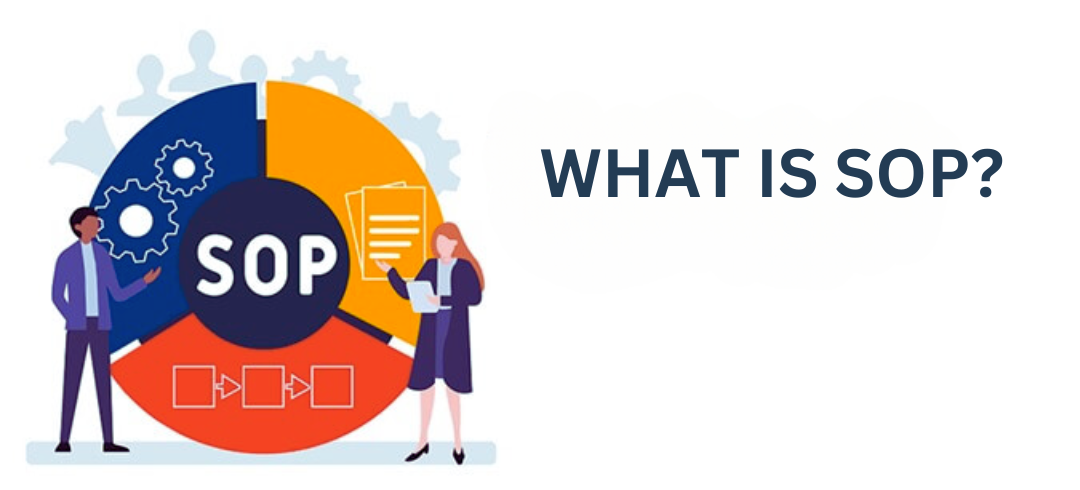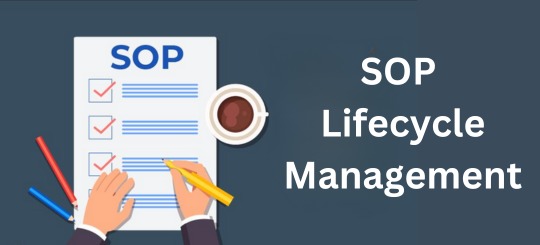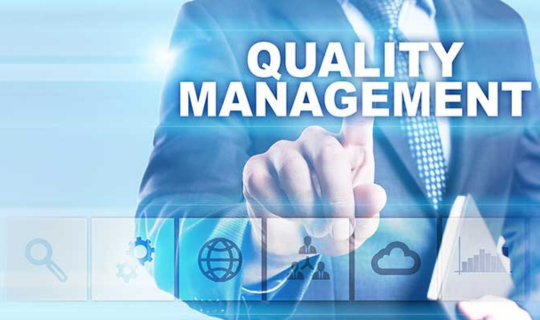SOP Dossiers And QMS
We are pleased to welcome you to our comprehensive resource on Standard Operating Procedures (SOP), Dossiers, and Quality Management Systems (QMS) in the pharmaceutical business. At Satori OCS, we place a high value on quality and compliance and provide you with an approachable manual for these crucial elements that underlie pharmaceutical enterprises’ success.
SOP Management in Pharmaceutical Industry
In the pharmaceutical sector, Standard Operating Procedures (SOPs) are essential since they form the basis for quality control and legal compliance. They are detailed documents that define step-by-step instructions and recommendations for numerous processes to ensure uniformity, efficiency, and safety in pharmaceutical operations.
What is a Pharmaceutical SOP
A tested, confirmed, approved, and documented method of carrying out operations serves as a basis of the pharmaceutical sector, known as a pharmaceutical standard operating procedure (SOP). It gives the staff detailed instructions on how to carry out a particular process.
Example: For instance, final pharmaceutical items are sterilized in accordance with approved SOPs; each product type's sterilization time and temperature are specified in the SOP.
The main goal of SOP is to simplify the Pharmaceutical Quality Management System (QMS), which improves the overall quality and safety of the product.
Daily operations that use SOPs include, but are not restricted to:
- SOP for a new hire's orientation
- SOP for routine packaging machine maintenance
- SOP for batch production in the production division
- SOP for operating process machinery

Why SOPs are Important in the Pharmaceutical Industry
Ensuring Product Quality and Safety: SOPs are essential for maintaining the highest level of product quality and guaranteeing the safety of pharmaceutical products. To satisfy regulatory standards, they offer precise guidance on production procedures, laboratory testing, and quality control techniques.
Regulatory Compliance: Following rules and regulations is crucial in a sector that is heavily regulated. SOPs assist pharmaceutical firms in adhering to national and international regulatory standards, such as GMP (Good Manufacturing Practices) and GLP (Good Laboratory Practices).
Risk Mitigation: SOPs include possible dangers and risks related to pharmaceutical processes. SOPs limit errors and deviations by offering consistent procedures, which lowers the risk of product recalls and regulatory non-compliance.
How to Develop Effective SOPs
Effective SOP development requires a methodical methodology. Starting with the identification of the need for a SOP, and progressing through development, evaluation, and finalization of the document, a comprehensive understanding of step-by-step procedure is required. SOPs are complete and useful when they consider the opinions of different stakeholders, such as subject matter experts, regulatory experts, and operational workers. Employees must comprehend and adhere to SOPs for them to be effective. We discuss the value of extensive training and offer suggestions for effective SOP implementation.
SOP Lifecycle Management
The pharmaceutical industry's success depends on SOP management. Pharmaceutical companies may assure consistent product quality, regulatory compliance, and a culture of continuous improvement by implementing well-designed SOPs and developing strong SOP lifecycle management.

Document Control and Versioning
A powerful document control system is necessary for managing various SOPs. Further, it is essential to focus on the value of version control and making sure that staff members always have access to the most recent version of SOPs.
Review and Revision
SOPs should be reviewed and updated on a regular basis to account for modifications to policies, procedures, or industry standards. Learn the value of routine reviews and how to deal with revisions.
Archiving and Retention
For audits and inspections, it is crucial to keep an organized archive of previous SOPs. We talk about the ideal methods for archiving and SOP retention in accordance with legal standards.
SOPs Auditing and Continuous Improvement
Regular internal audits help highlight areas of improvement and assess SOP compliance. Learn the advantages of performing internal audits and techniques for efficient auditing by contacting us. Promoting a continuous improvement culture is essential for improving SOPs and all aspects of pharmaceutical operations. To promote continuous improvement, we investigate approaches like Six Sigma and Lean.
We at Satori OCS are dedicated to assisting pharmaceutical companies in streamlining their SOPs for superior performance and productivity. Join us to improve SOP management and take your pharmaceutical aspirations to the next level.
Understanding Dossiers - The Backbone of Regulatory Submissions
When requesting authorization for the marketing and distribution of a drug that is new or a variant of an existing drug, a thorough package of documentation is referred to as a dossier. To have a medicine licensed for sale and distribution in the Indian market, the dossier is a significant component of the regulatory clearance procedure.
The dossier contains comprehensive details on the drug's quality, manufacturing method, safety, and efficacy. Depending on the scope of the approval, it is filed to the Central Drugs Standard Control Organization (CDSCO) and other pertinent regulatory agencies in India, such as State Drug Control Authorities.
Components of a Dossier in India
Common Technical Document (CTD): The CTD is a standardized format for providing regulatory data, including non-clinical and clinical trial data as well as the drug's chemistry, manufacturing, and controls (CMC) data.
Chemistry, Manufacturing, and Controls (CMC) Information: Information on the CMC of the medicine is provided in great depth in this part, along with information on the manufacturing procedure, quality control standards, stability data, and packaging.
Non-clinical data: Preclinical information and findings done on animals to evaluate the pharmacology, toxicity, safety and efficacy of a product prior to human trials are considered as non-clinical data.
Clinical data: Clinical data includes information on the efficacy, safety, and adverse effects of a drug as well as the findings of human clinical trials.
Quality Data and Certificates: Information about the drug's specifications, packaging, labeling, and certificates of compliance, such as Good Manufacturing Practices (GMP) and Good Laboratory Practices (GLP), are included in this part.
Other Data: The dossier may contain additional data, such as bioequivalence studies, drug-drug interaction studies, and post-marketing surveillance plans, depending on the precise regulatory needs.
Submission and Assessment
After preparation, the regulatory agencies conduct a thorough assessment of the dossier. The review procedure assesses the drug's quality, safety, and efficacy to determine whether it satisfies the requirements for approval. During the evaluation process, the CDSCO and other regulatory agencies may ask for more details or clarification.
Post-Approval Management
After approval, pharmaceutical companies oversee post-approval activities, including submitting modifications to the approved dossier for any updates or changes to the drug's information and continuing pharmacovigilance and post-marketing surveillance to track the drug's security and efficacy in actual use.
Get Consultancy on Pharmaceutical Dossier
A comprehensive collection of data and information on a pharmaceutical product submitted to the regulatory authorities in India for marketing approval is known as a dossier. It is a crucial document for pharmaceutical companies looking to launch brand-new medications or modifications to already-approved medications in the Indian market. For the effective licensing and commercialization of pharmaceutical goods in India, it is essential to ensure accuracy, completeness, and compliance with regulatory rules in the dossier.
Consult Satori OCS for professional advice regarding your pharmaceutical dossier in India. Our knowledgeable advisors offer specialized assistance for efficient regulatory submissions and timely compliance. Count on us to expedite the approval process of your pharma product. Call us right away!
Pharmaceutical Quality Management System (QMS)
Pharmaceutical firms use the QMS (Quality Management System) as a systematic framework to guarantee constant product quality, legal compliance, and operational improvement. It includes numerous practices, guidelines, and regulations created to uphold patient safety and product effectiveness while adhering to industry standards and legal obligations. The pharmaceutical business benefits greatly from QMS because it increases productivity, reduces risks, and promotes a culture of quality and excellence.
Pharmaceutical businesses can only offer safe and efficient products, receive regulatory clearances, and develop trust among stakeholders and customers if it is successfully implemented.
The relevant regulatory requirements that apply to business and industry must be reflected in the QMS. ISO 9001:2015 and ICH Q10 are two of the most significant quality standards and guidelines for the pharmaceutical business.

What is Quality in the Pharmaceutical Industry ?
The degree to which a medication ingredient or product satisfies its intended use and upholds its inherent features is referred to as quality in the pharmaceutical industry. This definition covers crucial characteristics including the substance's identification, potency, and purity.
For patient safety and successful treatment, a drug's quality is essential. Patients could suffer harm if the medicine is tainted or not pure. Similarly, a medicine may not be useful in treating the condition for which it was developed if it is not sufficiently powerful.
Pharmaceutical products must abide by regulatory standards before being approved for human use. In this sense, a Pharmaceutical Quality System (PQS) comprises all procedures of a system that aids in maintaining quality throughout the lifecycle of a pharmaceutical product.
What is Pharmaceutical Quality Management System (QMS)?
A comprehensive set of guidelines, procedures, and policies known as a pharmaceutical quality management system (QMS) is created to guarantee and maintain consistent, high quality when creating pharmaceutical products.
The applicable regulatory standards and the specific demands of the pharmaceutical industry must be reflected in the QMS.
Pharmaceutical businesses can reduce risks, boost customer satisfaction, and streamline quality procedures with the use of an effective Pharmaceutical Quality System (PQS) that represents the relevant criteria.
Several procedures are part of the pharmaceutical quality management system, including:
- Management of Documents
- Alternate Control
- Training Management
- Management of Audits
- Management of CAPA
- Management of Deviations and Other
To prevent quality deviations, the quality system employs monitoring techniques like Quality Assurance. It also places a strong emphasis on quality system documentation, which is used to track any issues and potential solutions.
Looking to put a strong Quality Management System (QMS) in your pharmaceutical company? Contact us right now for professional advice and customized solutions. Our knowledgeable team can assist you in streamlining your operations, achieving regulatory compliance, and maintaining the highest standards of quality since they are familiar with the complexities of the pharmaceutical sector. You can increase productivity, guarantee patient safety, and promote ongoing improvement with the help of our QMS expertise.
Reach out and take the first step in improving your pharmaceutical operations with a thorough QMS without holding back. For a QMS solution that meets your specific business objectives, get in touch right away.
Get in Touch with Us
FAQs
Q1. What does GXP compliance mean in the pharma industry?

GXP refers to good manufacturing, laboratory, and clinical practices that ensure product quality and safety.
Q2. Why is GXP compliance crucial in pharma?

GXP compliance is essential to meet regulatory standards, assure product quality, and protect patient safety.
Q3. What are the consequences of non-compliance with GXP regulations?

Non-compliance can result in regulatory penalties, product recalls, and damage to a company's reputation in the pharma industry.

